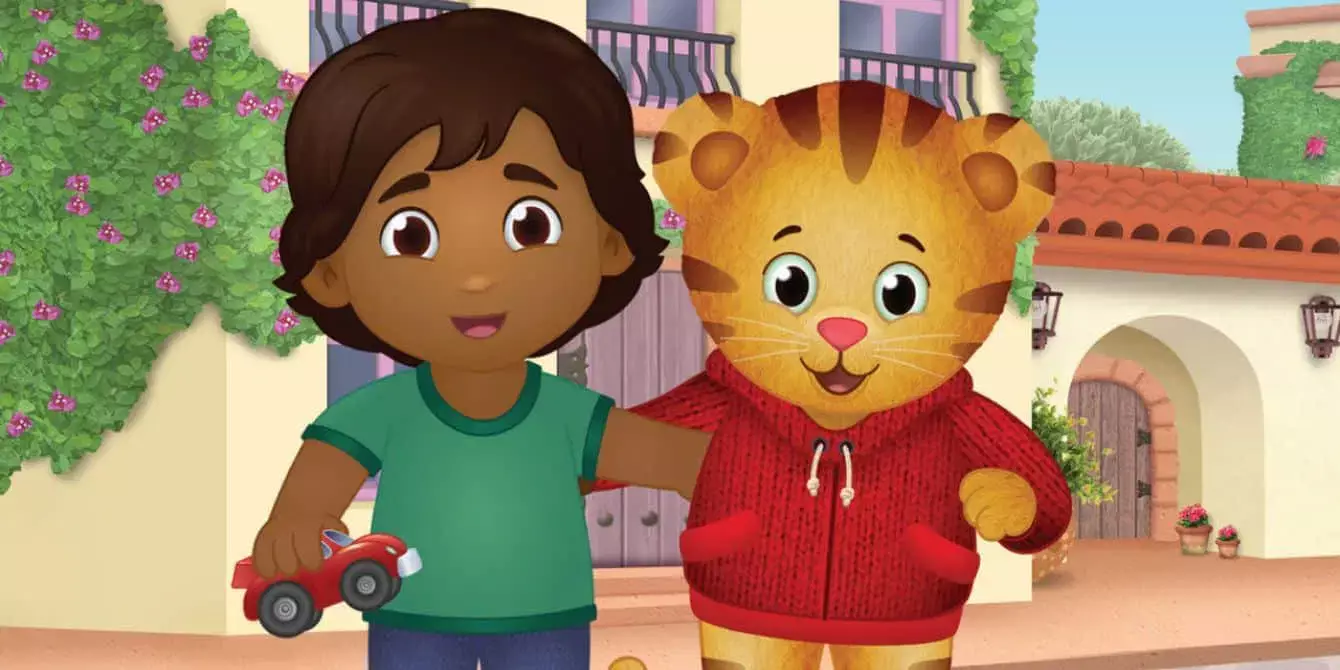The world of children’s television is often met with skepticism from parents, primarily due to the concern over the educational value these shows provide. Fortunately, some programs have risen above the noise, and one that stands out prominently is “Daniel Tiger’s Neighborhood.” With its charming characters and relatable storylines, this show not only captivates young audiences but also resonates deeply with their parents. As someone who was initially skeptical about children’s programming, I’ve found myself increasingly invested in this delightful series, which has brought forth valuable lessons for both my toddler and myself.
Rediscovering Childhood through Television
In an effort to shift my son’s viewing habits from mundane shows to something more enriching, I recalled the fond memories of “Mister Rogers’ Neighborhood,” a classic series that had influenced my own childhood. This nostalgia sparked my interest in “Daniel Tiger’s Neighborhood,” the modern adaptation that carries forward the legacy of kindness and community that Fred Rogers so passionately championed. A quick search on YouTube opened a gateway to this vibrant world where emotional understanding and learning go hand-in-hand—a wholesome experience for both of us.
The beauty of “Daniel Tiger’s Neighborhood” lies in its ability to engage children through relatable scenarios, emphasizing critical life skills such as empathy, patience, and emotional regulation. With every episode, my son is not only entertained but also educated. Each storyline weaves important concepts seamlessly into its fabric, making the lessons effortlessly digestible for young minds.
One episode that stands out to me is “Daniel Gets Mad.” The storyline follows Daniel’s exciting plans for a beach outing, which are quickly dashed by an unexpected storm. As a parent, I felt an immediate connection to the frustration exhibited by the characters. Daniel Tiger’s raw emotions serve as a poignant reminder that it’s perfectly normal for kids—and adults—to feel disappointed. What struck me was the approach that Mom Tiger took to help him cope: Rather than belittling their feelings, she modeled healthy emotional expression and provided constructive techniques to navigate anger.
By instructing the children to take a deep breath and count to four, she does not just teach them a calming mechanism but also demonstrates vulnerability. It’s a practical lesson in emotional regulation that I can easily apply in my day-to-day interactions with my toddler. The show reminds parents that it’s not about eliminating negative emotions; instead, it’s about acknowledging and managing them—a lesson that’s invaluable for both children and adults alike.
Learning Through Real-Life Challenges
What I appreciate most about “Daniel Tiger’s Neighborhood” is its commitment to portraying realistic challenges that toddlers face. From the simple struggles of sharing toys to dealing with unexpected changes in plans, the show encapsulates the essence of growing up. For example, when Daniel and his friend end up turning their disappointment into a creative indoor beach day, it illustrates the adaptability and resilience that children—and frankly, adults—must learn to cultivate.
It’s easy for parents to assume that children will intuitively grasp these social skills and emotional lessons. However, “Daniel Tiger” fills this gap, presenting a nurturing space where young viewers can explore these themes alongside relatable characters. Such replayable narratives open up discussions between parents and toddlers, creating an opportunity for us to reinforce these teachings in our everyday lives.
An essential aspect of “Daniel Tiger’s Neighborhood” is its portrayal of community. The consistent reminder that one isn’t alone in their struggles is vital for children as they grow up. Each character in the show—from the mailman to the bakery owner—represents a part of the intricate web of relationships we depend on. It serves as a touching reminder that raising a child is not just an individual endeavor; it’s a communal responsibility. Instilling this belief early on builds a sense of belonging and interconnection, which is a necessity in today’s often fragmented society.
As a parent, I’m also reminded that fostering relationships with others in our community enriches our lives and those of our children. The show provides a beautiful framework that emphasizes the value of kindness, understanding, and support among friends and family.
A Gratifying Experience for Parents and Children Alike
Ultimately, “Daniel Tiger’s Neighborhood” is more than just a TV show; it’s an invaluable resource that empowers both children and parents. It reduces the guilt often associated with screen time by providing educational content wrapped in warmth and humor. As I watch my son engage with the characters and their challenges, I find that the lessons imparted extend beyond him—they resonate deeply with me, reminding me that interpreting our emotions and navigating relationships is an ongoing journey.
I’m grateful that my son has access to a show that doesn’t merely entertain but enriches his emotional intelligence and instills essential social values. More importantly, it gives me a platform to learn alongside him, validating that we are both on this journey of growth together. Ugga mugga!

